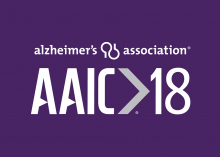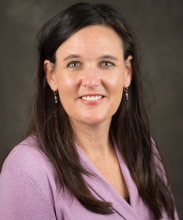
Alzheimer's disease researchers from UW-Madison presented a wide range of research at the Alzheimer’s Association International Conference (AAIC) in Chicago this week, from results showing that mild sleep-disordered breathing in middle-aged adults may affect brain health to using CRISPR/Cas9 gene editing tools to stop brain changes associated with Alzheimer's disease.
“UW-Madison Alzheimer's Disease Researchers Shine in Chicago” was posted on Thursday, July 26, 2018 to the University of Wisconsin-Madison Department of Medicine news page.






